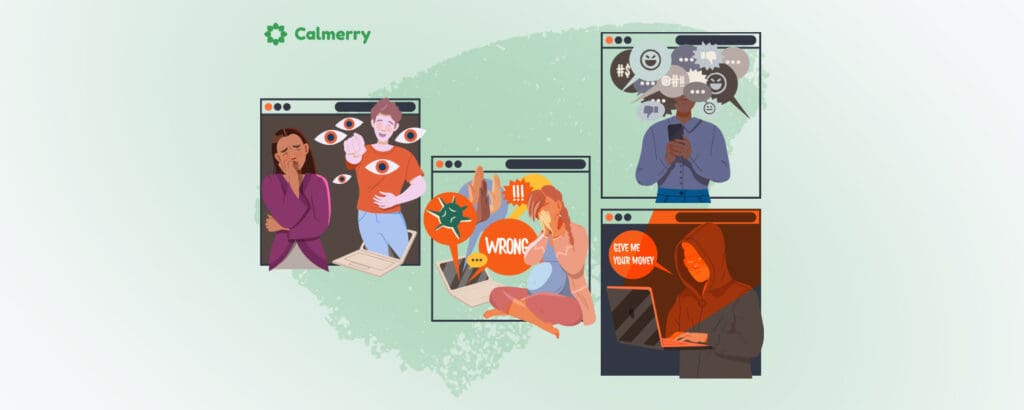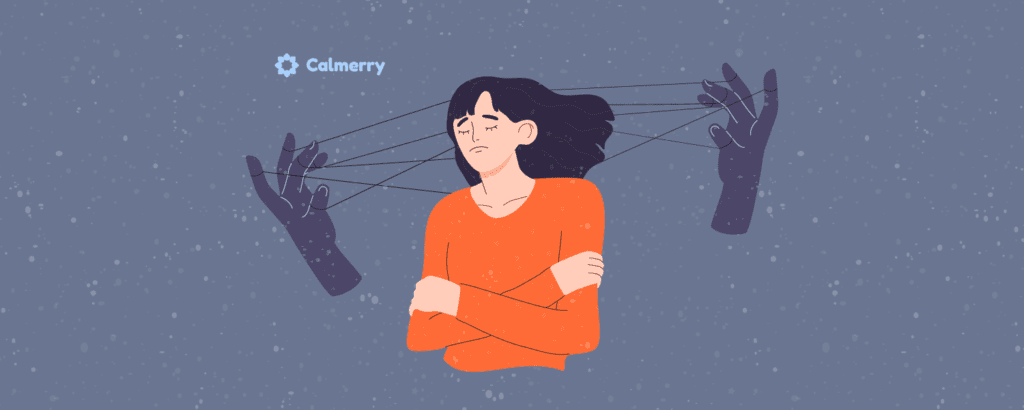How Does Bullying Affect Mental Health? And What to Do

In this article
As we connect on web platforms around the world, we get the opportunity to interact with people we might never have gotten the chance to meet pre-internet. When it comes to bullying, that’s both a blessing and a curse.
While connections made across the web can foster a sense of community and combat loneliness, they can also create breeding grounds for cyberbullying.
Bullying can happen anywhere and to anyone. It might be on social media, but it can also be at school, work, a group hangout, a restaurant, a public park, or even at home. Unfortunately, most people have experienced, heard about, or witnessed bullying at some point in their lives.
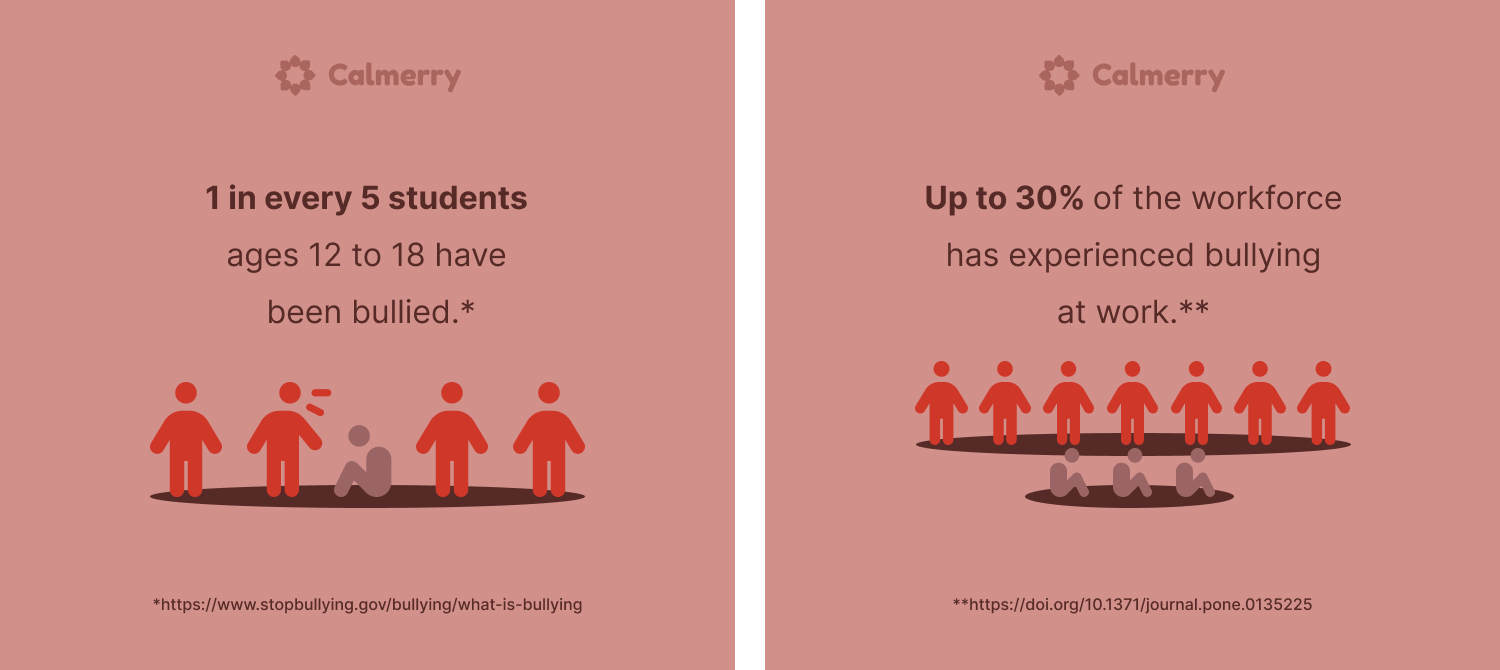
What is bullying?
Bullying is not the same as any rude or mean behavior. For example, if a person traveling to another town stops at a new place to get a coffee and the barista insults them, that is offensive and upsetting. But it wouldn’t be considered bullying.
Bullying has three parts to it:
- Intentionally aggressive behavior: This may include name-calling, threats, spreading rumors, physical violence, verbal attacks or shaming, and exclusion from a group.
- Happens repeatedly over time: In order to be considered bullying, the behavior has to occur – or at least has the potential to occur – over time.
- Includes a real or perceived imbalance of power: The imbalance of power is often not static and can be anything from physical strength, access to embarrassing or private information, or social status.
Federally collected data show that around 1 in every 5 students ages 12 to 18 have been bullied. And it doesn’t only happen to young people. Studies have found between 2% and 30% of the workforce has experienced bullying at work.
Bullying happens for many reasons, including to gain attention or popularity or to maintain power and control over another person.
Types of bullying
In general, there are three overarching types of bullying:
- Verbal bullying: This includes saying or writing hostile things and may involve teasing, taunting, threatening, name-calling, and unwanted sexual comments.
- Social bullying: This form of bullying can damage a person’s reputation or relationships and may include leaving the person out, telling other people to ignore them, gossiping or spreading rumors about them, or embarrassing them in front of other people.
- Physical bullying: Physical bullying involves violent behavior towards another person, including hitting, kicking, or pushing them, spitting on them, stealing or breaking their belongings, or making threatening physical gestures towards them.
Cyberbullying
With the global pandemic, many of us are taking our classes, connecting with our friends and family, and doing our work online. But this doesn’t mean that bullying has decreased.
In fact, as people become more and more connected to their digital devices, cyberbullying has become an increasingly widespread and talked about issue.
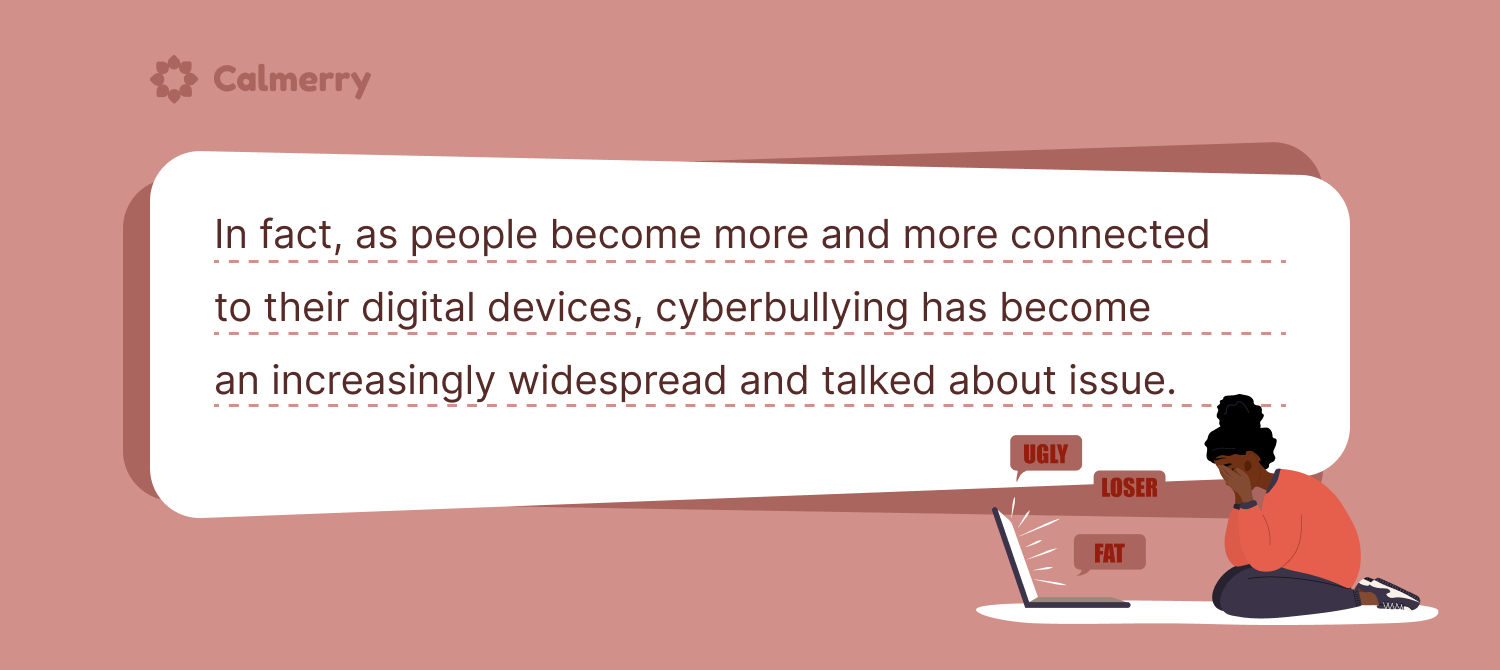
Cyberbullying is bullying that occurs through digital devices, including cell phones, tablets, and computers. It can be done via:
- Text or SMS
- Apps
- Social media (e.g. Instagram, Snapchat, TikTok, Facebook)
- Gaming communities
- Other web-based forums (e.g., Reddit)
It may include sending, posting, or spreading negative, embarrassing, or damaging information about another person. Popstar Zayn Malik is reported to have experienced cyberbullying early on in his career because of his race which caused distress, especially when it reached his family.
Complicating factors of cyberbullying are that it can:
- Be done anonymously and persistently
- Go viral, spreading across the Internet
- Be hard to recognize
- Live on the web for a very long time, even if the original mode of communication is deleted
- Damage the reputation of the perpetrator and victim for a long time to come with future employers, schools, and other individuals researching their names
If you become aware of or experience cyberbullying, it may help to preserve the evidence using screenshots or other methods. You can also report the behavior to online service providers as well as to schools and even the police if it includes threats of violence, child pornography, sexually explicit messages, stalking, or a hate crime.
Warning signs of bullying
Not everyone who is bullied asks for help, so it’s important to know the warning signs. These can vary tremendously depending on the person, age, situation, and culture. In addition, not everyone who is being bullied displays warning signs.
That said, some general things to keep an eye out for include:
- Missing or damaged belongings such as clothes, jewelry, and electronics
- Unexplainable or suspicious injuries, including cuts or bruises
- Physical ailments, including headaches or stomachaches
- The use of fake illnesses to avoid going somewhere
- Trouble with sleep or frequent nightmares
- Difficulty getting out of bed
- Eating more or less than usual
- Fear or avoidance of social situations
- Poor academic or work performance
- Sadness, tearfulness, or moodiness
- Social withdrawal
- Low self-esteem
- Anger
- Self-destructive behaviors
Signs that a person may be bullying others can include:
- Aggressive behavior
- Frequent fights
- Friendships with people who bully
- Positive attitude towards violence
- Unexplained new belongings
- A lack of personal responsibility
- Competitiveness
- Impulsivity
- Defiance towards authority
- A lack of empathy
- An aim to be popular
While each of these signs can be an indication of bullying, they may also be an indication of a different issue requiring a different response. Many of them also overlap with symptoms of a mental health condition, which could happen as a result of bullying or also as a separate issue.
How does bullying affect mental health?
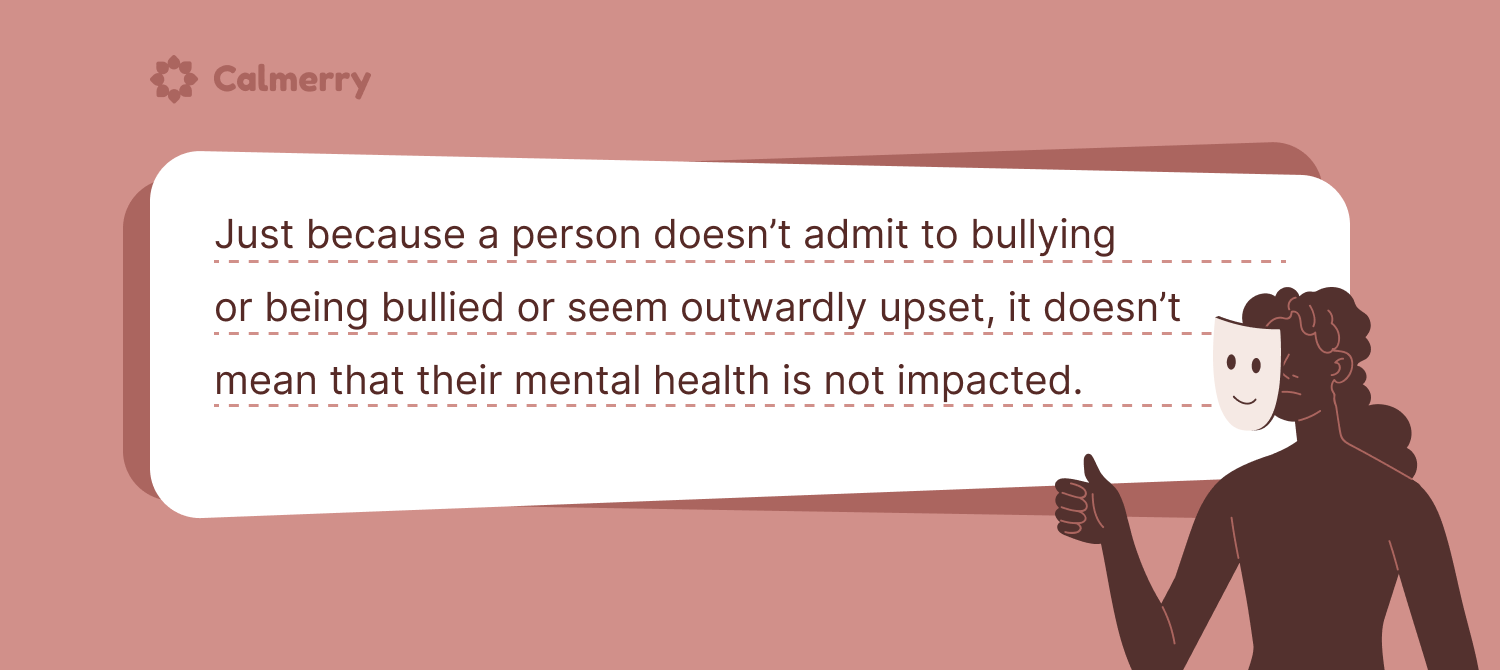
When people are bullied, they can feel helpless, humiliated, and afraid. They may not tell anyone in an attempt to handle it on their own or to regain a sense of personal control. They may also be embarrassed, want to avoid being seen as a tattletale, or fear retribution.
The mental health effects of bullying are myriad. Being bullied, and even bullying, can have a lasting impact on a person’s physical, mental, and emotional health both in the short term and down the line in their life.
Just because a person doesn’t admit to bullying or being bullied or seem outwardly upset, it doesn’t mean that their mental health is not impacted. In fact, there is an established link between bullying and mental health issues.
Low self-esteem
When you’re bullied, your self-esteem and confidence can plummet, even if you don’t believe the insults or condone the aggressive behavior of the bully. Over time, this insecurity can grow deep roots within you, leading to a need for self-esteem therapy, as you begin to question your self-worth.
Depression
The experience of being bullied and resulting in low self-esteem can ultimately develop into a depressive disorder with symptoms, including feelings of sadness and hopelessness, a loss of interest in the things you used to enjoy doing, weight changes, sleep changes, and a lack of energy.
People who both have been bullied and have perpetrated bullying are generally impacted the most. However, this may not be the case for cyberbullying, where the person who is bullied is at a higher risk for depression than the people who bully them or even people who are bullied through other means.
Anxiety
When a child or adult is bullied, they can eventually develop an anxiety disorder later on, including generalized anxiety disorder (GAD) or panic disorder.
The lack of safety, unpredictability, and fear that bullying provokes, can lead a person to become hyperaware and filled with worry during everyday activities.
Post-traumatic stress disorder (PTSD)
Bullying can be traumatic and has the potential to cause post-traumatic stress disorder (PTSD).
Symptoms of PTSD include an increased startle response, nightmares, flashbacks, irritability, and exaggerated negative beliefs like “I’m worthless,” or “no one can be trusted.”
Stress
Bullying can lead to a toxic stress response in the body that has multiple psychological and physical impacts. If a person is bullied as a child and develops a toxic stress response, they can be more at risk for developing chronic diseases such as heart disease and hypertension as well as mental health issues, including addiction and depression.
Furthermore, bullying doesn’t just impact the people directly involved. People who observe bullying can also experience mental health issues, including anxiety and depression. They may also develop a stress response or struggle with an urge to intervene while fearing retaliation.
Self-harm
Research has illuminated a link between bullying and self-harming behaviors–including scratching, cutting, hitting, and burning oneself–among adolescents ages 12 to 19.
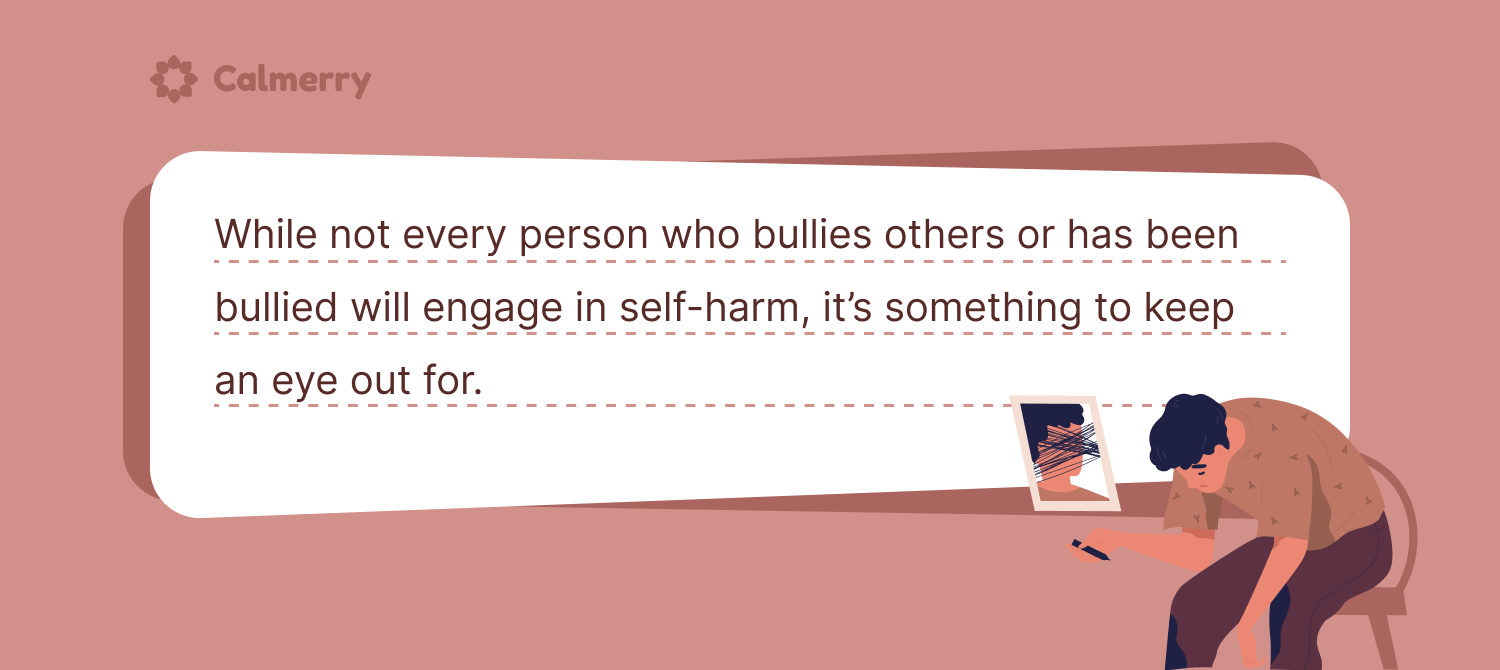
Social withdrawal
Bullying can lead to feelings of exclusion, rejection, and isolation. As children, we develop our personalities and begin to carve out our place in the world.
When you’re bullied, it can lead to problems with trust and self-confidence that make it hard to develop relationships with others, even later on in life.
Suicidal ideation
Sometimes, a person becomes so distressed that they think about ending their life. This is called suicidal ideation.
While most people who are bullied do not have thoughts of suicide, it can exacerbate the risk factors. If you or someone you love is starting to have thoughts about ending your life, don’t ignore them. Consider reaching out to a mental health professional or call the free, 24/7/365 National Suicide Prevention Lifeline at 1-800-273-8255.
People who bully
The research focused on children and youth who bully and are bullied actually found that people who bully also suffer mental health consequences and may be more prone to:
- Anti-social behaviors
- Academic problems
- Substance use
- Aggressive behavior
- Violence towards others
What to do
For bullying that occurs among children, it’s essential that adults stay calm and step in. First, make sure that everyone is safe. If they are, separate the children involved, and convey the message that bullying is not acceptable.
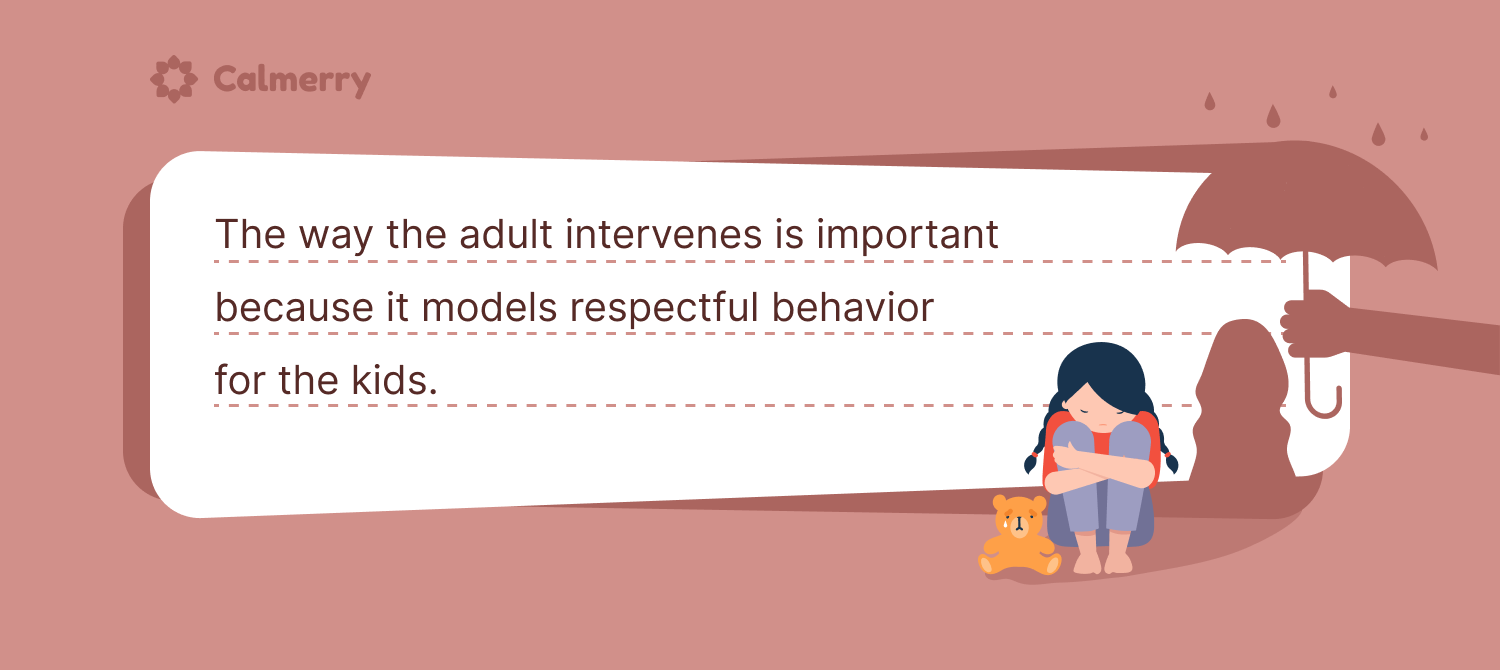
Common mistakes that adults tend to make include:
- Ignoring the bullying
- Assuming the kids can work it out on their own
- Pushing bystanders to say what they saw in front of others
- Forcing the kids involved to say what happened in front of others
- Talking to the kids involved together
- Making the kids involved patch things up on the spot
There are times when intervening in bullying becomes an emergency or requires additional support. It’s typically time to call the police or get medical attention right away if:
- Anyone is seriously injured
- Sexual abuse has occurred
- There’s a weapon involved
- There are threats to serious physical harm
- There are threats of a hate-crime
- There is any kind of illegal act involved (e.g., robbery)
Much of the same advice can be applied to adults who are bullied. If you’ve been bullied in the past or are being bullied now, and it’s impacting your mental health, consider reaching out to a mental health professional for help.
You can connect with a Calmerry online therapist from any secure and private place where you have an internet connection.
Final thoughts
When bullied, many people begin to internalize the negative messaging that they receive and develop a strong inner critic. “If I wasn’t so ugly, I’d be treated better.” Or, “I can’t do anything right.”
While these messages may feel true at the moment, they’re actually internalizations of the bullying. If you’ve found yourself feeling extremely self-critical, explore what it would be like to tell yourself that you are enough, just as you are. Because ultimately, that’s the truth.
Your therapist can help you begin to recognize and challenge those negative thought patterns and work with you to develop healthy ways of coping while channeling your energy towards the important to you things.
online therapy
live video session

